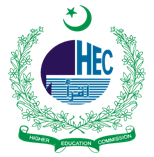Strengthening Bureaucratic Power in Pakistan: Addressing Challenges and Enhancing Accountability for Effective Governance
Keywords:
Bureaucratic Power, Governance, Accountability, Corruption, Political Interference, Capacity Building, Civil-Military Relations, E-Governance, Public AdministrationAbstract
This research will analyze, in-depth, how the bureaucracy navigates and manages itself under the political conditions that obtain in Pakistan. It would also investigate and interrogate the extent to which further power might be laden on either bureaucracy or the political system to improve governance in the country. The role of bureaucratic power - that emanates from administrative, expert, political, coercive stress, and legitimacy dimensions - becomes all more critical in the implementation of policies and delivery of services. However, a range of issues, including corruption, political interference, lack of training, resistance to reform, and complicated civil-military relations have severely undermined the importance of bureaucratic power. Public trust is eroded more by corruption and therefore, reduces the legitimacy of bureaucratic institutions. Political interference diminishes the independence of civil servants within the system, thus leading to inefficiencies in governance.
Seeking solutions to these challenges, the study suggests recommended strategies for mitigation. Strengthening anti-corruption agencies and implementation of whistle-blower protection laws would fight this vice. Measures like clear guidelines for bureaucratic independence would create a healthy environment to reduce political interference while creating professionalism culture in the civil service. Besides, enhancement of training and capacity development would equip bureaucrats with skills necessary for effective governance through continuous professional development programs. Therefore, their active involvement in the execution of reforms and communication, particularly based on benefits, could lead to easily accepting reforms with reduced resistance.
The study goes further to emphasize the necessity of reforming civil-military relations through civil oversight mechanisms and democratic governance. Leverage on technology through transparency by initiating e-governance solutions and open data portals will go a long way in streamlining bureaucratic processes and increasing public accountability.
Downloads
Published
Issue
Section
License
Copyright (c) 2024 Dr. Junaid Athar Khan, Dr. Syed Noman Mustafa, Dr. Sonia Sethi, Dr. Azhar Khan

This work is licensed under a Creative Commons Attribution-NonCommercial 4.0 International License.








